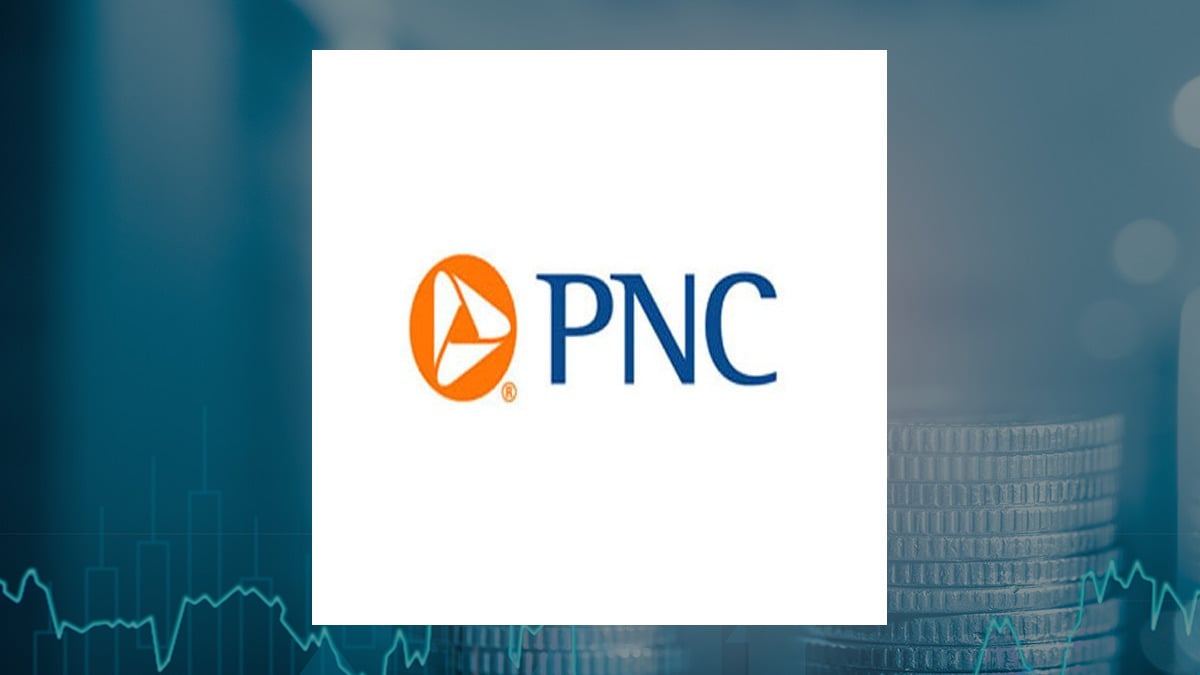The PNC Financial Services Group (NYSE:PNC – Get Free Report) and Fidelity D & D Bancorp (NASDAQ:FDBC – Get Free Report) are both finance companies, but which is the superior business? We will compare the two companies based on the strength of their dividends, risk, analyst recommendations, earnings, valuation, profitability and institutional ownership.
Profitability
This table compares The PNC Financial Services Group and Fidelity D & D Bancorp’s net margins, return on equity and return on assets.
| Net Margins | Return on Equity | Return on Assets | |
| The PNC Financial Services Group | 15.53% | 11.33% | 1.03% |
| Fidelity D & D Bancorp | 14.14% | 11.48% | 0.84% |
Institutional and Insider Ownership
83.5% of The PNC Financial Services Group shares are held by institutional investors. Comparatively, 20.0% of Fidelity D & D Bancorp shares are held by institutional investors. 0.4% of The PNC Financial Services Group shares are held by company insiders. Comparatively, 21.0% of Fidelity D & D Bancorp shares are held by company insiders. Strong institutional ownership is an indication that hedge funds, large money managers and endowments believe a stock is poised for long-term growth.
Volatility & Risk
Analyst Ratings
This is a breakdown of current ratings and price targets for The PNC Financial Services Group and Fidelity D & D Bancorp, as provided by MarketBeat.com.
| Sell Ratings | Hold Ratings | Buy Ratings | Strong Buy Ratings | Rating Score | |
| The PNC Financial Services Group | 2 | 6 | 8 | 0 | 2.38 |
| Fidelity D & D Bancorp | 0 | 0 | 0 | 0 | N/A |
The PNC Financial Services Group currently has a consensus target price of $176.09, indicating a potential upside of 3.63%. Given The PNC Financial Services Group’s higher probable upside, research analysts plainly believe The PNC Financial Services Group is more favorable than Fidelity D & D Bancorp.
Valuation & Earnings
This table compares The PNC Financial Services Group and Fidelity D & D Bancorp’s gross revenue, earnings per share (EPS) and valuation.
| Gross Revenue | Price/Sales Ratio | Net Income | Earnings Per Share | Price/Earnings Ratio | |
| The PNC Financial Services Group | $31.88 billion | 2.12 | $5.58 billion | $11.91 | 14.27 |
| Fidelity D & D Bancorp | $70.66 million | 3.57 | $18.21 million | $2.83 | 15.54 |
The PNC Financial Services Group has higher revenue and earnings than Fidelity D & D Bancorp. The PNC Financial Services Group is trading at a lower price-to-earnings ratio than Fidelity D & D Bancorp, indicating that it is currently the more affordable of the two stocks.
Dividends
The PNC Financial Services Group pays an annual dividend of $6.40 per share and has a dividend yield of 3.8%. Fidelity D & D Bancorp pays an annual dividend of $1.52 per share and has a dividend yield of 3.5%. The PNC Financial Services Group pays out 53.7% of its earnings in the form of a dividend. Fidelity D & D Bancorp pays out 53.7% of its earnings in the form of a dividend. Both companies have healthy payout ratios and should be able to cover their dividend payments with earnings for the next several years. The PNC Financial Services Group has raised its dividend for 14 consecutive years and Fidelity D & D Bancorp has raised its dividend for 9 consecutive years. The PNC Financial Services Group is clearly the better dividend stock, given its higher yield and longer track record of dividend growth.
Summary
The PNC Financial Services Group beats Fidelity D & D Bancorp on 11 of the 16 factors compared between the two stocks.
About The PNC Financial Services Group
 The PNC Financial Services Group, Inc. operates as a diversified financial services company in the United States. It operates through three segments: Retail Banking, Corporate & Institutional Banking, and Asset Management Group segments. The company's Retail Banking segment offers checking, savings, and money market accounts, as well as time deposit; residential mortgages, home equity loans and lines of credit, auto loans, credit cards, education loans, and personal and small business loans and lines of credit; and brokerage, insurance, and investment and cash management services. This segment serves consumer and small business customers through a network of branches, digital channels, ATMs, and through phone-based customer contact centers. Its Corporate & Institutional Banking segment provides secured and unsecured loans, letters of credit, and equipment leases; cash and investment management services, receivables and disbursement management services, funds transfer services, international payment services, and access to online/mobile information management and reporting; securities underwriting, loan syndications, customer-related trading, and mergers and acquisitions and equity capital markets advisory related services; and commercial loan servicing and technology solutions. It serves mid-sized and large corporations, and government and not-for-profit entities. The company's Asset Management Group segment offers investment and retirement planning, customized investment management, credit and cash management solutions, and trust management and administration services for high net worth and ultra high net worth individuals, and their families; and multi-generational family planning services for ultra high net worth individuals and their families. It also provides outsourced chief investment officer, custody, private real estate, cash and fixed income client solutions, and retirement plan fiduciary investment services for institutional clients. The company was founded in 1852 and is headquartered in Pittsburgh, Pennsylvania.
The PNC Financial Services Group, Inc. operates as a diversified financial services company in the United States. It operates through three segments: Retail Banking, Corporate & Institutional Banking, and Asset Management Group segments. The company's Retail Banking segment offers checking, savings, and money market accounts, as well as time deposit; residential mortgages, home equity loans and lines of credit, auto loans, credit cards, education loans, and personal and small business loans and lines of credit; and brokerage, insurance, and investment and cash management services. This segment serves consumer and small business customers through a network of branches, digital channels, ATMs, and through phone-based customer contact centers. Its Corporate & Institutional Banking segment provides secured and unsecured loans, letters of credit, and equipment leases; cash and investment management services, receivables and disbursement management services, funds transfer services, international payment services, and access to online/mobile information management and reporting; securities underwriting, loan syndications, customer-related trading, and mergers and acquisitions and equity capital markets advisory related services; and commercial loan servicing and technology solutions. It serves mid-sized and large corporations, and government and not-for-profit entities. The company's Asset Management Group segment offers investment and retirement planning, customized investment management, credit and cash management solutions, and trust management and administration services for high net worth and ultra high net worth individuals, and their families; and multi-generational family planning services for ultra high net worth individuals and their families. It also provides outsourced chief investment officer, custody, private real estate, cash and fixed income client solutions, and retirement plan fiduciary investment services for institutional clients. The company was founded in 1852 and is headquartered in Pittsburgh, Pennsylvania.
About Fidelity D & D Bancorp
 Fidelity D & D Bancorp, Inc. operates as the bank holding company for The Fidelity Deposit and Discount Bank that provides a range of banking, trust, and financial services to individuals, small businesses, and corporate customers. The company accepts savings, club, interest-bearing and non-interest-bearing checking, money market, and short- and long-term time deposits, as well as certificates of deposit. It also offers commercial and industrial, commercial real estate, consumer, and residential mortgage loans. In addition, the company provides alternative financial and insurance products with asset management services. The company was founded in 1902 and is headquartered in Dunmore, Pennsylvania.
Fidelity D & D Bancorp, Inc. operates as the bank holding company for The Fidelity Deposit and Discount Bank that provides a range of banking, trust, and financial services to individuals, small businesses, and corporate customers. The company accepts savings, club, interest-bearing and non-interest-bearing checking, money market, and short- and long-term time deposits, as well as certificates of deposit. It also offers commercial and industrial, commercial real estate, consumer, and residential mortgage loans. In addition, the company provides alternative financial and insurance products with asset management services. The company was founded in 1902 and is headquartered in Dunmore, Pennsylvania.
Receive News & Ratings for The PNC Financial Services Group Daily - Enter your email address below to receive a concise daily summary of the latest news and analysts' ratings for The PNC Financial Services Group and related companies with MarketBeat.com's FREE daily email newsletter.
